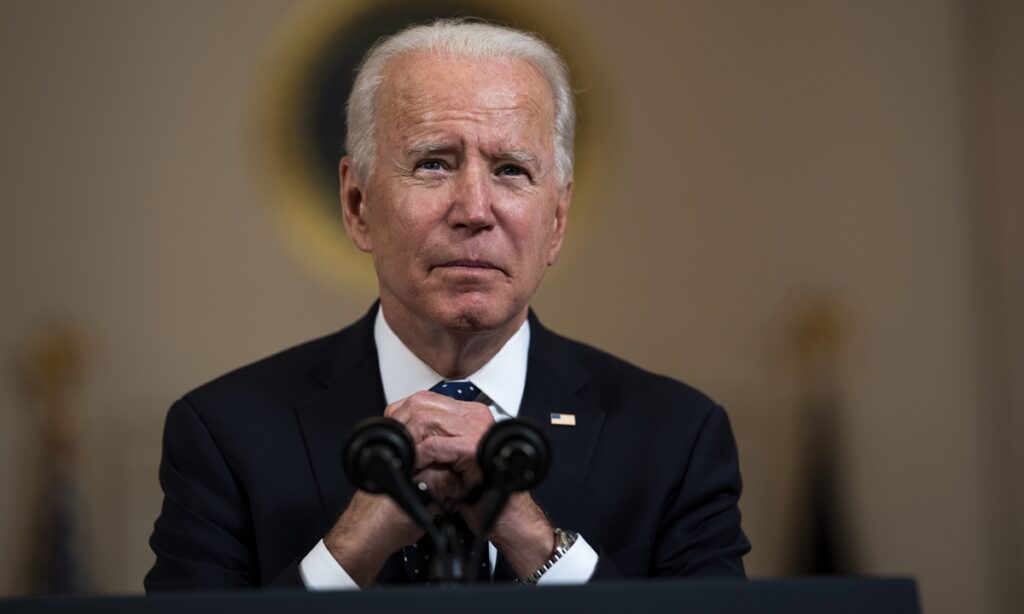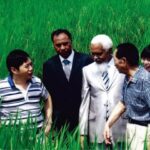The US is reorganizing its allies and partners to fix its image as “the leader” when it found increasing difficulties worldwide such as the Afghan issue, climate change and the COVID-19 pandemic, and the Quad summit next week is another try made by US President Joe Biden, but Chinese experts said on Tuesday that the summit will make no big change on its hostility against China though the statement released by the White House about the summit didn’t mention China.
Biden will host the first-ever Quad Leaders Summit at the White House on September 24. “Biden is looking forward to welcoming to the White House Prime Minister Scott Morrison of Australia, Prime Minister Narendra Modi of India, and Prime Minister Yoshihide Suga of Japan,” according to the White House statement released on Monday.
The Quad Leaders will focus on deepening our ties and advancing practical cooperation on areas such as combating COVID-19, addressing the climate crisis, partnering on emerging technologies and cyberspace, and promoting a free and open Indo-Pacific, the statement said.
The Quad leaders also had a virtual meeting in March, and the summit scheduled to be held next week is in-person.
Lü Xiang, an expert on US studies at the Chinese Academy of Social Sciences, told the Global Times on Tuesday that “the summit is just another show with limited concrete outcomes. The US, Japan, India and Australia are just like four wardmates with different illnesses but stay in the same ward.”
“These four countries share topics for discussions but they have different stances. The US hasty pullout from Afghanistan caused huge loss to India; Australia refused to make promise on coal mining for the climate change issue; Japan is now facing a chaotic political situation, and being unwisely provocative toward China due to Taiwan question,” so the US is hard to make them perfectly reorganized, Lü said.
Suga’s term as the leader of the ruling party of Japan’s Liberal Democratic Party – and by default Japanese prime minister – ends on September 30. He has said he would not run in the next election for party leader. So to what extent Biden could reach sustainable agreements with Suga is a question.
India suffered from great loss in Afghanistan, since the return of the Taliban make India’s huge inputs to the former US-formed government produce no outcomes at all, but New Delhi swallowed the bitter consequence without complaint to the US, said Lin Minwang, a professor at the Institute of International Studies at Fudan University.
“Because India has decided to lean to the US side, the US can still coordinate with India even after its irresponsible decision in Afghanistan that made New Delhi pay a heavy price, Lin noted.
Although the China-Australia ties are still intense, according to Reuters, China has lobbied the Australian parliament to help it join the Comprehensive and Progressive Agreement for Trans-Pacific Partnership (CPTPP).
Chen Hong, director of the Australian Studies Center at East China Normal University in Shanghai, told the Global Times on Tuesday that it’s possible that Australia would provide some supports to China in joining CPTPP in exchange for China to reopen its market to Australian products, especially before the election next year, fixing trade ties with China would be a major political achievement for the ruling party of Australia.
Chen noted that the Quad won’t change its hostility toward China but if Australia has wisdom and intention to fix ties with China, it’s likely to see the both sides use the CPTPP issue as a chance to ease tension.
After the phone call between Chinese and US leaders on Friday, the international community is expecting the two biggest economies of the world to ease tension but it seems like the US is unlikely to change its hostile attitude toward China immediately, and the summit next week could be a chance for Biden to unify its allies on attitude to China in the next stage, to balance competition and cooperation, said experts.
Biden is expected to call for a summit on boosting the global supplies of COVID-19 vaccines, according to US news outlets. The summit will be held during the UN General Assembly later this month, the VOA reported.
The Washington Post reports the topics will include coordination among world leaders to collectively tackle the health crisis and address inequities, including the slow rate of vaccinations in the developing world.
US President Joe Biden Photo: IC




